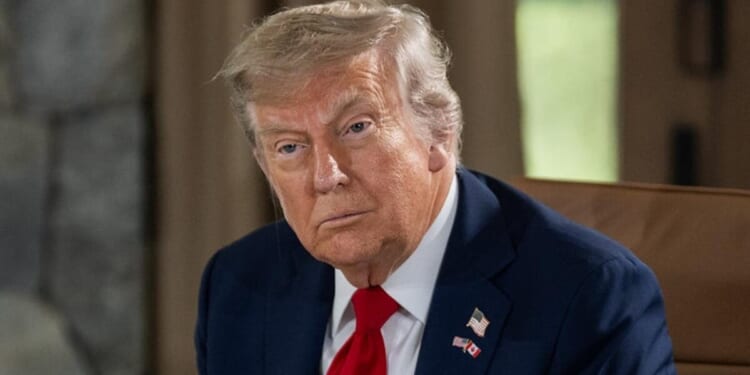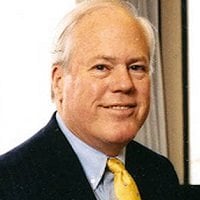Op-ed views and opinions expressed are solely those of the author.
In the wake of the Charlie Kirk assassination, many are urging the polite nostrum of “turning down the temperature,” but Donald Trump was not among them. Instead, he bluntly accused Democrats of continuing to condone the violent suppression of conservative speech. In doing so, he once more demonstrates why he is regarded as a gruff protector of traditional Americans who adhere to the polite, principled discourse exemplified by Kirk.
The insightful Joseph Epstein wrote an interesting Wall Street Journal piece, “The Unbearable Ubiquity of Trump,” humorously complaining that in the age of Trump, the President is constantly in our lives, bullishly touting one initiative after the next, with no rest for the weary. More darkly, he observed, per philosopher Michael Oakeshott, politics has become too much of our lives, the mark of a dying society.
Epstein’s factual foundation is impeccable. There is much yammering about “politics,” if one wishes to use that term to describe leftist aims. Within the country’s Left, politics is entirely about the personal, from private purchases to locker room designations. But to those on the Right, gas stoves and one’s tomboyish girl should not be made political at all. More strongly, conservatives seek the freedom to speak their commonsense view of life without political condemnation or destruction. Or, for that matter, any interference from the government.
Epstein is correct that in the age of Trump, politics pervades our existence and often makes what should be pedestrian into heated, disconcerting flashpoints.
But precisely who brought the personal into the political, making politics all-pervasive? There shouldn’t be a substantial controversy as to which end of the political spectrum caused this.
Former New York Times reporter Nellie Bowles, both humorously and sadly, recounts in her book, Morning After the Revolution, how the Left has made the most intimate personal aspects of life into political issues. Bowles fell in love with another Times reporter, a female whose evolving political views had been abruptly declared anathema by the paper’s staff, causing Bowles herself to be ostracized. The personal, she shows, is the political for these Progressive zealots.
There can be no doubt but that the Left has taken what was the legitimate racial integrationist playbook of the 1960s and applied it to every issue since. Seemingly, gay rights were a legitimately analogous application, but it should not be applied to 6’4” fully endowed males wishing to disrobe in female locker rooms.
George Floyd, perhaps already in mortal distress from Fentanyl ingestion, was done in by an unnecessary knee to his throat applied by a smirking white male police officer, understandably creating outrage, shared by most conservatives. This should have been, and in another era would have been, a unifying moment. But, unfortunately, sensible people left that boat when the “mostly peaceful” orgy of looting and destruction followed in hundreds of cities, with no Progressive pushback.
Normal, non-ideologues, sickened by Floyd’s death, were more horrified that the city and state leaders would allow the destruction of lives, billions in damage, and sweat equity of minority small business owners in the name of racial “equity.”
The personal became entirely political due to Draconian COVID mandates. Patriotic, loyal men and women in service were dismissed for resisting a COVID jab. Small businesses were bankrupted, and religious institutions were barred from gathering. But massive, maskless BLM protests, with thousands congregating in close proximity in the name of equity, were just fine.
And of course, the 2020 election. Most could accept that if official totals favored Biden, we needed to be good citizens and accept the result, while seeking reform of our voting systems. However, anyone with common sense could see that the combination of widespread paid vote harvesters and millions of unsolicited mailed ballots, which were often gathered in bundles in apartment complexes, homes, and drop boxes, would result in a high number of illegitimate votes. And anyone who questioned the eye-popping total vote count was deemed a “denier.”
The contrast was not lost on voters when a few thousand protested the 2020 election by marching into the Capitol Building on January 6, 2021. They were described as “insurrectionists” and enemies of the state by the same media and Democrat politicians who played down the deaths of 20 people and $2 billion in fiery property damage across the country the previous summer as “mostly peaceful protests.” Had Kamala Harris been elected President, there would still be “J6” grannies jailed and awaiting trial, while her Floyd riot bail fund, largely unneeded, obtained the release of the few violent protestors held to account.
In the face of rampant political correctness turned “woke” at least by 2020 (but building inexorably since Watergate), sensible and polite Americans increasingly felt marginalized and silenced. Thus, the importance of Donald Trump – impious, combative, and often crude.
Unlike every Republican for the last 110 years since Teddy Roosevelt, Trump has not been cowed but, instead, speaks even more brashly when criticized. But he is not like most Democrats, speaking of doctrine or identity politics. He is talking common sense, while taking on the “fake news” for known deception.
A highly acclaimed, Black Leftist writer for The Atlantic (and a New York Times contributor), Thomas Chatterton Williams, wrote The Summer of Our Discontent, about this same subject. In essence, progressive identitarian wokeness resulted in illiberal depredations, causing an impassioned reaction from conservatives. Trump’s popularity, he reasons, is a reaction to the illiberal chilling of speech and ideas. Any observer with common sense discerns Williams’ analysis that extreme wokeness has triggered a ferocious backlash, solidifying the Right.
This balanced leftist analysis should have drawn respect from that purveyor of illiberal wokeness, the New York Times. But Times book reviewer Justin Driver still does not get the point. He persists in calling the Floyd riots “overwhelmingly nonviolent” and distains Williams’ criticism of the media’s embrace of Jussie Smollett’s racial hoax. Rather than accepting some Progressive blame, Driver blames all divisiveness on Donald Trump. Driver’s is not atypical of leftist thought, if we can call it that.
One would think that all this finger-pointing at Trump would have at least paused with the horrible assassination of Charlie Kirk on September 10. If anyone in our country exemplified polite engagement with the opposite side, it was Charlie Kirk. That he was killed specifically for speaking his mind, persuading others, there can be no doubt.
But rather than reflecting on this violent attack on civilized discourse, the Left, of course, blamed conservatives. Matthew Dowd suggested Kirk’s rhetoric regarding opposition to gun control contributed to his murder. The Guardian named Paul Pelosi and Melissa Hortman as two victims of conservative violence. Contrary to the pompous Guardian, the homeless assailant of Pelosi was simply crazy, not conservatively crazy. Sorry, but Hortman was killed by a “No Kings” protestor upset that Democrat Hortman crossed the aisle to pass a Republican bill denying Medicaid to adult male illegal immigrants. Likewise, Josh Shapiro’s house was torched by a pro-Palestinian who averred that he would have beaten Shapiro with a hammer had he been home.
Representative Seth Moulton (D-Mass) claimed J6 protesters were seeking to kill Nancy Pelosi and Mike Pence, not, as was the case, forcing them to postpone the vote confirming Joe Biden as President. You know, the way anti-Kavanaugh protestors physically forced hapless Senator Jeff Flake to allow a continuance of a vote. Other commentators have been selectively quoting Kirk out of context to portray him as a “hatemonger,” implicitly justifying the assassination.
Instinctively anticipating this rhetoric, Trump needed to say what he said, allowing most Conservatives to remain polite and principled. We once again see that Trump is not a statesman-like gentleman. However, he is a wartime rhetorical leader against a violent and arrogant Left that long ago abandoned principled discourse.
DONATE TO BIZPAC REVIEW
Please help us! If you are fed up with letting radical big tech execs, phony fact-checkers, tyrannical liberals and a lying mainstream media have unprecedented power over your news please consider making a donation to BPR to help us fight them. Now is the time. Truth has never been more critical!
Success! Thank you for donating. Please share BPR content to help combat the lies.
We have no tolerance for comments containing violence, racism, profanity, vulgarity, doxing, or discourteous behavior. Thank you for partnering with us to maintain fruitful conversation.


















